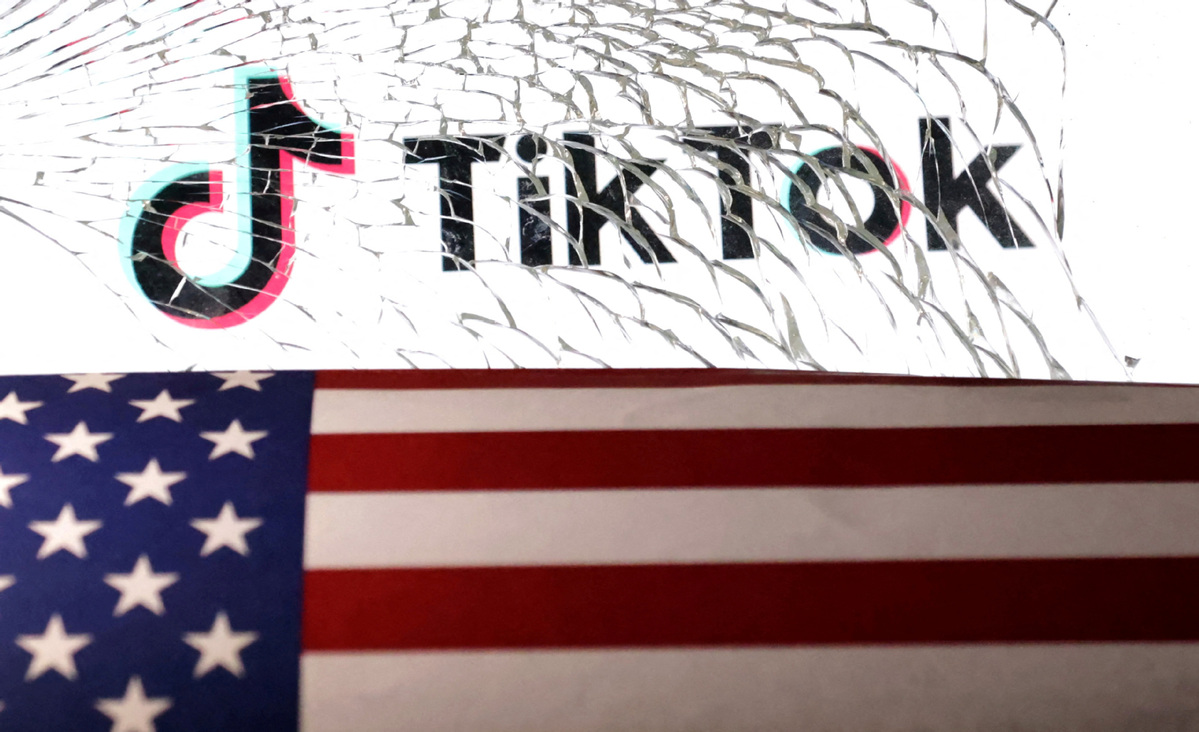Possible TikTok ban puts free speech in peril
By FAN FEIFEI | China Daily Global | Updated: 2024-04-24 09:10

TikTok, owned by Chinese tech company ByteDance, highlighted its free speech concerns following the passage of a bill by the United States House of Representatives that could see the popular social media platform banned in the US.
"It is unfortunate that the House of Representatives is using the cover of important foreign and humanitarian assistance to once again jam through a ban bill that would trample the free speech rights of 170 million Americans, devastate 7 million businesses, and shutter a platform that contributes $24 billion to the US economy, annually," the company said in a statement.
The comments came after the bill was approved on Sunday by a 360-58 vote. It requires TikTok's parent company ByteDance to sell its stake within a year, or face a ban on the video-sharing app.
The legislation now goes to the Senate after negotiations that lengthened the timeline for Byte-Dance to sell to nine months, with a possible additional three months if a sale is in progress.
A previous version passed by the House of Representatives in March gave ByteDance six months to divest its ownership stake in TikTok, but that plan stalled in the Senate.
Tesla CEO Elon Musk expressed his opposition to banning TikTok in the US. "In my opinion, TikTok should not be banned in the US, even though such a ban may benefit the X platform. Doing so would be contrary to freedom of speech and expression. It is not what America stands for," he wrote on his social media platform X.
Some Democrats have raised free speech concerns over the possible ban and instead asked for stronger data privacy legislation. Democratic representative Ro Khanna told ABC News that he felt a TikTok ban may not survive legal scrutiny, citing the Constitution's free speech protections.
The legislation will unconstitutionally restrict free speech rights of US citizens, and could impact small business owners, who benefit from using the platform, said Rand Paul, a Republican senator.
TikTok CEO Shou Zi Chew said in a video posted on the platform last month that he would not stop fighting to prevent the bill from being signed into law and urged the public to continue voicing their opposition to it.
"We will continue to do all we can, including exercising our legal rights to protect this amazing platform that we have built with you. We believe we can overcome this together," Chew said.
He also noted that the ban would not only force users in the US to lose access to the app but also "put more than 300,000 American jobs at risk".
TikTok has also indicated that it would likely go to court to try and block the law if it passes, arguing it would deprive the app's millions of users of their First Amendment rights.
The possible ban also drew criticism from users in the US. Sophia Zhang, who lives in Boston, opened an online store last year selling kitchen gadgets with about 300,000 followers on TikTok Shop, TikTok's e-commerce arm that allows US consumers to find and directly purchase products used in livestreaming and short videos.
Zhang said she was angry and anxious about the bill as most of her income is generated through TikTok. "I strongly oppose the legislation, which is going to threaten small businesses. The ban of TikTok will be devastating and have a huge impact on my life," she said.
























